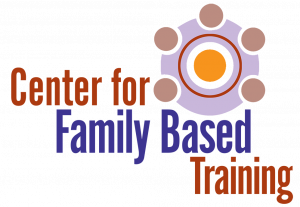If you have any trouble viewing the webinar videos, it may be due to a pop-up blocker in your browser. Please email emily@familybasedtraining.com if you need any support.
You will receive a response with 24-48 business hours.
The Center for Family Based Training, LLC, is approved by the American Psychological Association to sponsor continuing education for psychologists. The Center for Family Based Training, LLC maintains responsibility for this program and its content.
The Center for Family Based Training, LLC has been approved by NBCC as an Approved Continuing Education Provider, ACEP No. 6424. Programs that do not qualify for NBCC credit are clearly identified.
The Center for Family Based Training, LLC is solely responsible for all aspects of the programs.
The Center for Family Based Training, provider #1309, is approved as an ACE provider to offer social work continuing education by the Association of Social Work Boards (ASWB), Approved Continuing Education (ACE) program. Regulatory boards are the final authority on courses accepted for continuing education credit. ACE provider approval period: 04/28/2025-04/28/2028.
NOTE: ASWB approval is only for synchronous distance courses, and recorded asynchronous distance courses.
